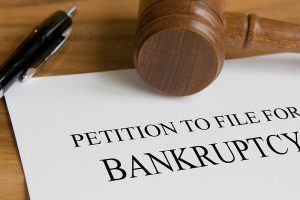What Bankruptcy Can Do For You

There’s no rule or law about when you should file a personal bankruptcy in Illinois. An experienced Chicago bankruptcy lawyer will evaluate your personal financial situation before suggesting any specific legal alternative. In some cases, bankruptcy will be the only practical option; for others in debt, a different strategy may be less expensive but equally favorable. Let an experienced Chicago bankruptcy lawyer help you make the right decision if you are struggling with overwhelming debt in the Chicago area. Bankruptcy may allow you to:
– Eliminate your legal responsibility to pay off most of your debts. This is called a “discharge” of your debts, and it gives you a fresh financial start.
– Stop foreclosure on your home or mobile home and allow you to catch up on payments you’ve missed. Bankruptcy does not automatically eliminate mortgages and other liens on your property without payment.
– Stop repossession of your vehicle or other property or force a creditor to return property even after a repossession.
– Stop debt collection harassment, wage garnishment, and similar actions by your creditors.
– Restore or stop a cutoff of utility service.
– Allow you to challenge creditors who are trying to collect more than you actually owe them.
Chapter 7 bankruptcy is the most common bankruptcy; all of your outstanding unsecured debts (such as credit card debt, medical debts, auto debts, and mortgage debts) are liquidated. Chapter 7 is primarily for persons with no income or income insufficient to pay their debts. In a Chapter 13 bankruptcy, you and your lawyer draft an acceptable plan to pay your debts over a precise length of time. Either way, it’s imperative to have guidance from an experienced Chicago bankruptcy lawyer. Any mistakes in the process are likely to cost you. To begin the process or simply to learn more about bankruptcy in Illinois and other options for satisfying your debts, contact an experienced Chicago bankruptcy lawyer as quickly as possible.


